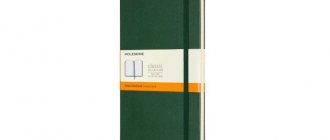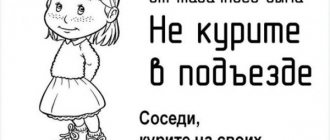How to choose an assortment
The main task of such stores is to create an assortment that will be in demand. There are many people who want to hand over their belongings, but how to figure it out and navigate through it all is a difficult question. In order not to get confused in all the variety of goods, modern second-hand shops choose a narrow specialization. The success of such a store is determined by whether the entrepreneur correctly determined:
- potential buyers;
- volume and quality of items accepted into the store;
- store promotion methods.
How to determine your specialization
It is clear that you need to choose a product category that is more in demand. But how to estimate this demand? The surest way is to study which store formats are currently profitable.
- “Branded”, where clothes, shoes and various accessories are sold.
There are a lot of such stores in large cities and they are successful. There are items from fashionable and famous brands. Thrift stores even have Instagram accounts where they post photos of their items. The visitors are predominantly women, but from completely different social strata: from students to office ladies;
- Childen's goods.
The demand for these products is understandable: children grow up quickly, and some people do not see the point of spending a lot of money on things that will be used for a short time. In such thrift stores you can find imported strollers and cribs, and various expensive gadgets. Initially, expensive items last for several years, so you can find items in excellent condition, but much cheaper;
- Technique.
Stores selling used electronics can be found in almost every city. In such thrift stores you can find any equipment - from mobile phones to washing machines. These are everyday products that break down frequently and unexpectedly. Not everyone can immediately purchase new equipment. In this case, it is beneficial for people to go to a thrift store. Main audience: students, youth. In this case, it is important that the selection of goods is carried out by a seller who understands technology.
- Furniture, work tools.
Home goods used to make up the bulk of thrift store inventory. This category of goods is relevant for different people: for those who move; equips a rented apartment or office; for students, etc. But there is one problem - furniture is a large-sized product, and sometimes problems with storage may arise. Therefore, such furniture second-hand stores often provide additional delivery, loading, and repair services.
- Jewelry or antique consignment store.
Not everyone will be able to evaluate the assortment in such a store, so the circle of potential buyers is limited. In such thrift stores you can find antique furniture, rare books, vintage jewelry, etc.
- Format "A Thousand Little Things"
is a combination of several directions at once. The store sells goods of various categories. Many entrepreneurs recognize that this is the most effective business format. However, it is important that the entrepreneur carefully selects the assortment - and not everyone can cope with this.
There are many options, choose the one that would be interesting to you. Consider your competitors too. Several thrift stores in one city can coexist peacefully, especially if they represent different formats. Choose the option that will allow you to create a unique offer on the market.
You might also be interested in:
Online cash registers Atol Sigma - how to earn more
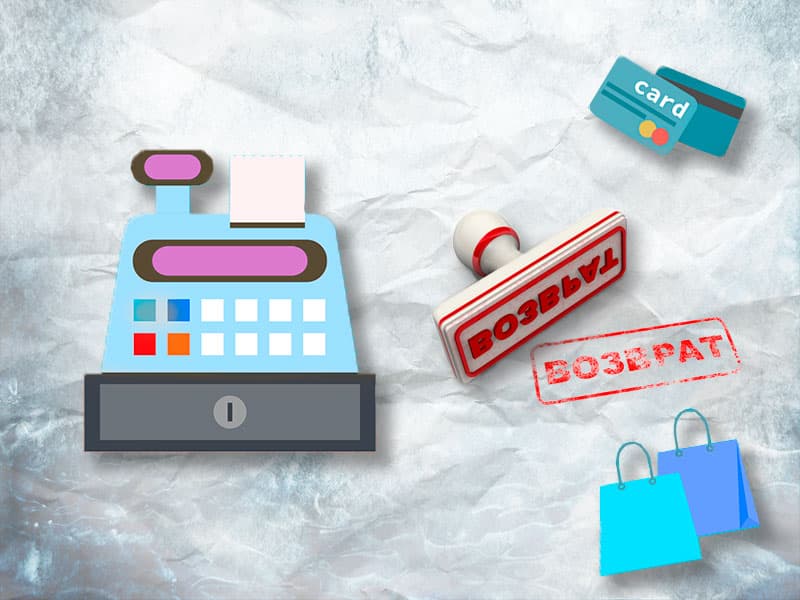
How to make a return to a buyer at an online checkout: step-by-step instructions
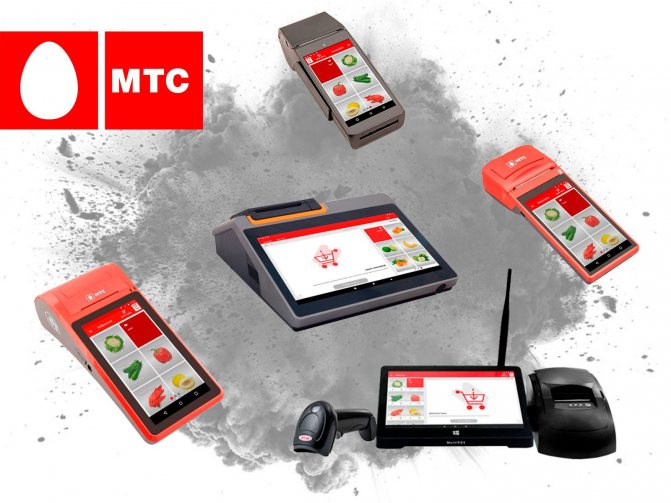
MTS cash desk: review of online cash register models
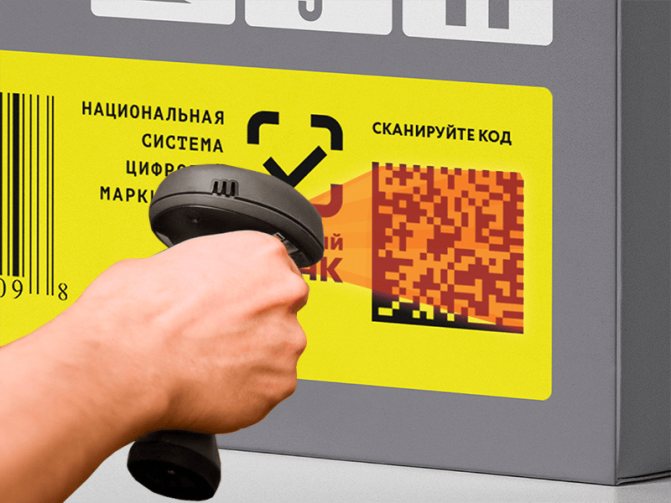
Scanners for product labeling
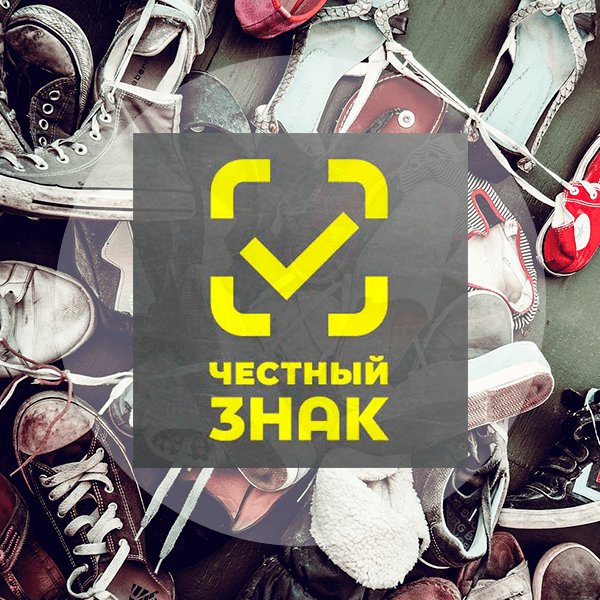
Shoe marking for retail 2021

Online cash register for dummies
Did you like the article? Share it on social networks.
Add a comment Cancel reply
Also read:
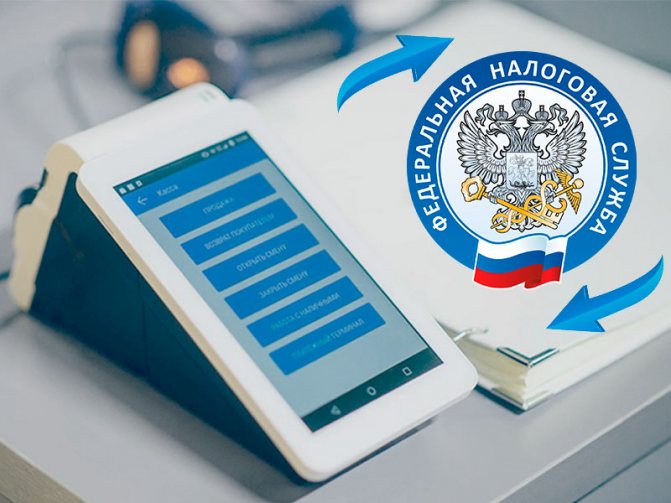
Tax accounting of online cash register with the Federal Tax Service
Tax registration of an online cash register with the Federal Tax Service is a mandatory operation, non-compliance with which entails administrative fines.
By law, all entrepreneurs are required to switch to using modern cash register equipment included in the cash register register and register it with the tax service. This can be done either in person by visiting the Federal Tax Service or via the Internet. Read about all the features of registering an online cash register for tax purposes in our article... 306 Find out more

How to register in the Argus Rosselkhoznadzor system
Registration with Argus is necessary for those involved in the transportation of agricultural goods to the territory of the Russian Federation and beyond its borders, and transit transportation.
It is part of FSIS VetIS. Operator: Rosselkhoznadzor. Registration in the Argus system Registration in the Argus Rosselkhoznadzor system for LLCs and individual entrepreneurs in the shortest possible time at a competitive price. More details about the proposal Why the Argus System is needed The goals of creating the Argus system... 346 Find out more

Restaurant automation programs
Restaurant automation is the process of implementing hardware and software in a catering enterprise.
Its goal is to simplify and speed up business processes by replacing manual labor with automated systems. Automation programs Ready-made functional software for restaurant automation from official developers at low prices - from 200 rubles. Find out more Results of restaurant automation Manual work of staff is associated with low speed... 1080 Find out more

How to open an individual entrepreneur: step-by-step instructions for beginners
Simple instructions will help you open an individual entrepreneur and work within the law. If you engage in entrepreneurial activity without registering with the tax authorities, the businessman will face fines in addition to tax charges. In this article we will look at what you need to know about individual entrepreneurship, who can become an individual entrepreneur, how to choose a tax system and much more. Open a current account for individual entrepreneurs on favorable terms Accept non-cash payments and...908 Find out more
What is the operating pattern of consignment stores?
The operating system of consignment stores is simple and transparent. The goal of an entrepreneur is to sell someone else’s goods and receive a certain percentage for it. In this case, the goods do not become the property of the second-hand shop, but remain the property of the first owner. The owner sets the price for the goods himself.
Typically, a store places goods on display for a certain period of time, which is 1-3 months. If during this time the product remains on the shelf, it is handed over to the owner, but then a storage fee is charged - 3-5% of the cost of the product. If the product is sold, the owner fills out a special contract form, which indicates the transfer of ownership rights to the product in question.
The entrepreneur's job is to mediate the transaction and ensure that both parties comply with their obligations. To avoid unforeseen situations, lawyers advise recording each purchase and sale transaction on paper with signatures. Forms should be prepared in advance.
In the trade of used goods, the following commission charging scheme is common: the more expensive the item, the lower the store’s percentage. For example, when selling a computer for 30 thousand rubles, your share of the sale will be 10% (3 thousand rubles), and when selling shoes for 1 thousand rubles - up to 30% (330 rubles). Thus, you have the task of selling different things - both expensive and cheap. Keep in mind that cheap items sell faster.
The store owner sets the interest rate himself. But experienced entrepreneurs advise using a progressive commission system, since it has proven itself best in the field of commission trading.
The purchase of goods is documented
When purchasing goods for resale, you can use the goods acceptance certificate form No. TORG-1.
It is used to formalize the acceptance of goods in terms of quality, quantity, weight and completeness in accordance with the rules for acceptance of goods and the terms of the contract. The number of acts drawn up is not regulated and is justified by the actual situation. When purchasing products from the population, you can use a procurement act in form No. OP-5. It is drawn up in two copies and signed by the person who purchased the products and the seller. One copy of the purchase act is given to the seller, the second remains with the buyer.
Commission Trading Principles and Regulatory Framework
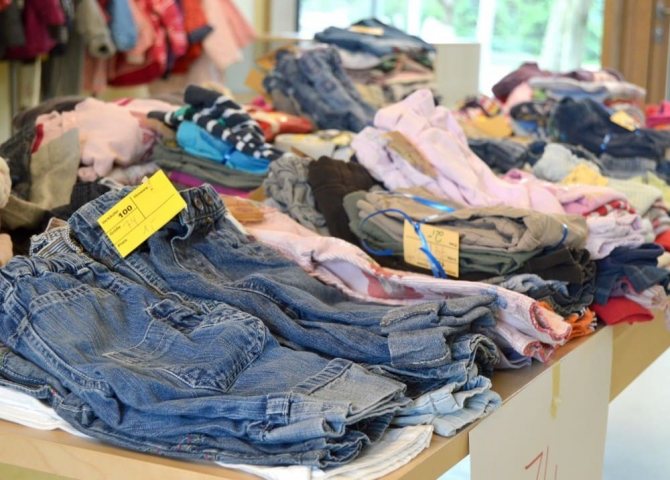
From a legal point of view, the work of a consignment store is based on the conclusion of an agreement between two parties: the consignor, who provides the goods, and the commission agent, who undertakes to sell it for a certain remuneration (commission). The procedure for concluding such agreements is defined in Chapter 51 of the Tax Code of the Russian Federation.
The agreement is drawn up in 2 copies for each of the parties and certified by a seal. There is no strictly regulated form of the agreement, but it must reflect: details of the commission agent; date and number of the contract; full description of the product, its characteristics and price; conditions of acceptance and deadline for its implementation; the amount of commission in case of sale of goods or payment for storage if the goods are not sold.
Participants can be both individuals and legal entities. For example, a store may accept products from a wholesale supplier or other trading organization.
The relationship between the commission agent and private individuals is regulated by a special document: “Rules for commission trade in non-food products” (approved by Post. No. 569, 06.06.1998). We will not retell its contents, but will focus on the key principles of commission trading:
- You can accept things from individuals only upon presentation of a passport;
- The client who handed over the goods is its owner until the moment of sale. At any time he can terminate the contract and return the goods to himself;
- The size of the commission is usually set as a percentage of the cost of the item, but there are other ways: for example, a fixed amount of remuneration. This is discussed by agreement of the parties;
- The store is responsible for the safety of things to the principal, but is not obliged to insure the property that is transferred for sale;
- The commission agent may refuse to fulfill the contract only in one case: if it does not indicate a sale period. The client must be notified of the termination of the contract 30 days in advance.
- It is not allowed to accept goods that cannot be exchanged or returned, as well as those that are prohibited or restricted in circulation. Such products include the following categories: underwear, medicines and medical devices, cosmetics and perfumes, etc.
- An item accepted for commission must be put up no later than the next day. A price tag indicating the degree of wear is attached to it. If the warranty period for the product has not expired, all documents must be handed over to the buyer. In case of sale, the money is paid to the principal no later than the 3rd day after the sale.
Now that you’ve managed to understand the specifics of the thrift store’s activities, it’s time to decide what you need to open.
We accept goods on consignment
Let us recall that according to the commission agreement, the commission agent undertakes, on behalf of the committee, for a fee, to carry out one or more transactions on his behalf, but at the expense of the principal (clause 1 of Article 990 of the Civil Code of the Russian Federation).
Thus, in a commission agreement, the individual transferring the goods for sale will accordingly be the principal. Items received by the commission agent from the principal are the property of the latter until they are sold or transferred to the buyer. This is indicated in paragraph 1 of Article 996 of the Civil Code of the Russian Federation.
In addition, the principal is obliged to pay the commission agent the remuneration determined by agreement of the parties (clause 1 of Article 991 of the Civil Code of the Russian Federation). At the same time, commission trade in non-food products has its own rules, which were approved by Decree of the Government of the Russian Federation of June 6, 1998 No. 569. They relate, in particular, to the procedure for filing claims with the commission agent in the event of detection of defects in the goods and violation of the rules for informing the buyer about the product.
Registration of a consignment store
Legalizing the activities of a consignment store is quite simple. The registration procedure is standard and does not require special permits. The algorithm for registering a business is as follows:
- Register an individual entrepreneur or LLC with the tax office. Please note that if you plan to cooperate with legal entities, you will need to register an LLC. Enter code as OKVED: 47.79 - Retail trade of used goods in stores;
- Choose a tax system. It is recommended to apply the simplified tax system at a rate of 6% of income or 15% “income minus expenses”;
- Register with the Pension Fund if you plan to hire employees;
- Obtain permission for trading activities from the local administration;
- Obtain permission from the fire inspection and SES;
- Conclude a rental agreement for premises.
For commission trading, separate forms are provided
When the commission agent receives the goods, he fills out form No. KOMIS-1.
It is called “List of goods accepted for commission.” It contains information characterizing the condition of the goods (new, used, degree of wear, main product characteristics, defects of the goods). The document records the results of the sale, markdown of the goods, as well as the return of unsold goods to the consignor.
For each product, upon acceptance of the goods and conclusion of the contract, a product label is issued in the form No. KOMIS-2. It is written out in one copy, signed by the commission agent and the committent and attached to each item. The detailed name of the product and information characterizing its condition are also indicated there.
In the event of a markdown of goods, the new price, act number, markdown date and signature of the financially responsible person are affixed to the product label. When it is carried out, form No. KOMIS-3, an act on the markdown of goods, is drawn up. It is drawn up by the commission agent in one copy, signed by officials of the commission agent’s organization and the committent.
If the goods are purchased, then a certificate of sale of goods accepted for commission is drawn up in form No. KOMIS-4. This document is used for settlements with the principal, as well as in the case when goods accepted on commission are not sold in full, but partially under the contract. The certificate indicates the contract number, name of the product sold, quantity and amount. The certificate is drawn up in two copies.
The first copy of the certificate with the commodity report is transferred to the accounting department. The second remains with the financially responsible person. The certificate is signed by the financially responsible person, accountant and head of the company.
To maintain analytical accounting of goods in commission trade, the Card for accounting of goods and settlements under commission agreements in form No. KOMIS-6 is used. In this case, accounting is kept individually for each product and sales price.
The date card shows:
- goods receipt;
- its markdown;
- sale;
- remaining goods;
- returning the goods to the consignor;
- accrued and paid amount of money and debt to the principal.
The goods received from the principal are accounted for by the commission agent in off-balance sheet account 004 “Goods accepted for commission” at the prices indicated in the acceptance documents.
The commission agent, as the goods are sold to the buyer, debits its value from the specified off-balance sheet account. Grounds: paragraph 158 of the Guidelines for accounting of inventories, approved by Order of the Ministry of Finance of Russia dated December 28, 2001 No. 119n.
Choosing a consignment store premises
First of all, decide in which area of the city it is better to locate a thrift store. It would be more profitable to place it in a densely populated area, remote from the center. Firstly, you will meet more of your potential buyers there. And secondly, the cost of renting premises in such areas will be lower.
Also take into account the advantageous proximity. You can stay close to a clinic, public transport stop, or grocery store.
The requirements for the room itself are minimal: area 15-30 square meters. m. and more, depending on the specifics of the product. If you plan to sell furniture, you will need an area of more than 200 square meters. m. Keep in mind that in thrift stores there are almost no warehouses - all goods are displayed on display in the sales area. Still, a little utility room wouldn't hurt. The cost of renting such a premises will be about 15 thousand rubles.
There is no need to withhold personal income tax
Russian organizations from which or as a result of relations with which a citizen received income are required to calculate, withhold and pay the amount of tax to the budget.
The exception is income in respect of which tax is paid in accordance with Article 228 of the Tax Code of the Russian Federation. Grounds: paragraph 2 of Article 226 of the Tax Code of the Russian Federation. However, subparagraph 2 of paragraph 1 of Article 228 of the Tax Code of the Russian Federation establishes that individuals who receive income from the sale of property owned by them are required to independently calculate personal income tax on such income. In addition, they themselves must submit the corresponding tax return to the tax office at the place of their registration and pay the calculated tax to the appropriate budget within the established time frame (clauses 2 and 3 of Article 228 of the Tax Code of the Russian Federation).
In such cases, organizations are not required to provide tax authorities at the place of registration with information on the income of individuals and the amounts of taxes accrued, withheld and transferred to the budget system of the Russian Federation. The fact is that such an obligation is established by paragraph 2 of Article 230 of the Tax Code of the Russian Federation only for tax agents.
So, in such a situation, citizens themselves should take care of calculating and paying personal income tax. Financiers also point to this (letter of the Ministry of Finance of Russia dated May 24, 2013 No. 03-04-06/18646).
Equipment purchase
A thrift store requires a minimum of equipment:
The commission shop requires minimal equipment:
- Showcase and counters (depending on the type of product. For example, clothes need hangers and fitting booths with mirrors);
- Furniture for the seller: table, chair, counter;
- Laptop and MFP;
- Cash machine.
You will have to spend approximately 60 thousand rubles on equipment.
Consignment store costs
The initial investment will be minimal. At the start you will have to spend money on:
- Equipment – 60 thousand rubles
- Rental of retail space – 15 thousand rubles
- Advertising - both free promotion tools can be used here (for example, advertisements in a newspaper or the Internet), as well as paid ones - advertising in elevators will be the most effective. Minimum budget – 5 thousand rubles;
- Drawing up the necessary forms, contracts and other documents (the minimum price is 1000 rubles for each) – 5 thousand rubles;
- The cost of registering a business is 5 thousand rubles.
- Unforeseen expenses - 10 thousand rubles
Total initial costs will be 100 thousand rubles.
In addition to the initial investment, you need to plan your monthly expenses:
- Rent of premises – 15 thousand rubles;
- Salary to the seller – 17 thousand rubles;
- Consumables (paper for printing contracts, receipt paper, office supplies, etc.) – 3 thousand rubles;
- Taxes – 5 thousand rubles.
Total monthly expenses will be 40 thousand rubles.
How much can you earn from commission trading?
Experts believe that the number of thrift stores will only grow in the coming years. Used goods should not be afraid of the crisis, because at this time the demand for them is only increasing. The advantage of commission trading is the absence of risks: you do not need to spend money on bulk purchases of goods, which, if unsuccessful, can become unprofitable ballast.
To calculate the expected profit, you need to know the approximate amount of the daily check. According to the most conservative indicators, it is 15 thousand rubles. In this case, you will receive a commission of 20% of the proceeds – i.e. 3 thousand rubles. Then the monthly revenue will be 90 thousand rubles. The entrepreneur will have a net profit of 50 thousand rubles.
With such indicators, the initial investment will pay off in 2-4 months. This is a good indicator that indicates the profitability of the business. So with minimal investment you can open a simple but quite profitable business.
Finally, here are some tips for those who have decided to open their own consignment store:
- From the very first day of operation of a consignment store, there should be goods on the shelves. Therefore, you should advertise in advance about accepting used items for consignment. If you can’t find an assortment, you can purchase a minimum set of goods at various stocks or the Avito.ru website;
- Rent a room that you can fully use. A half-empty hall is not only a waste of money, but also psychologically uncomfortable for visitors;
- Do not sell overpriced goods if you know that hardly anyone will buy them. Typically, used items cannot be worth more than 50% of their original price;
- Flyers advertising your thrift store can be distributed through mailboxes. Add a discount coupon to the flyer - this will increase the likelihood that people will come to the store.
Commission agent's income remuneration
The tax base for income tax on the resale of goods is easy to determine.
Revenue excluding VAT must be reduced by the purchase price of the goods and selling expenses. And when trading on commission, you need to take into account some features. The intermediary does not take into account income in the form of goods and funds received by him in connection with the fulfillment of obligations under the commission agreement, as well as in reimbursement of expenses incurred by him for the principal (subclause 9, clause 1, article 251 of the Tax Code of the Russian Federation). Expenses in the form of property transferred by an intermediary in connection with the fulfillment of obligations under commission agreements, as well as in payment of expenses made by such an intermediary for the principal, do not reduce the tax base. An exception is the case when these costs are subject to inclusion in the intermediary’s expenses in accordance with the terms of the commission agreement (clause 9 of Article 270 of the Tax Code of the Russian Federation).
Thus, for income tax purposes, the commission agent takes into account only the commission fee.
